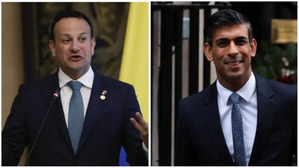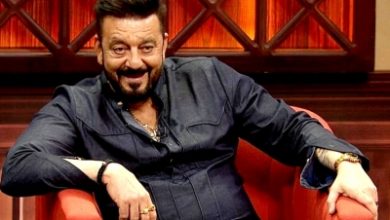The political desi’s unstoppable rise around the world beyond Rishi & Leo

New Delhi, Dec 30 : In September this year, Singapore President Tharman Shanmugaratnam joined the growing list of Indian-origin leaders dominating the world politics, just as Rishi Sunak scripted history by becoming Britain’s first desi premier in 2022.
Before him, Leo Varadkar — born to an Indian father and Irish mother — took over the reins of Ireland in 2017 as first Indian-origin Taoiseach, or Prime Minister, and came back for a second term again in the same role in December last year.
Indubitably, the new generation of emigrants from India has successfully dived into local politics with many like Sunak, Varadkar, US Vice- President Kamala Harris and Guyanese President Mohamed Irfaan Ali reaching the uppermost echelons of their countries’ political spectrum.
And as former South Carolina Governor Nikki Haley and Biotech entrepreneur Vivek Ramaswamy cross swords in the Republican primary debates for the 2024 US Presidential race, it only goes on to show that there is no stopping the 30 million-plus strong Indian diaspora spread across the length and breadth of the world, now.
This is especially true of Indians in more developed countries like the UK, Canada and the US, where their presence in electoral politics is discernibly visible.
As they gain prominence, both in terms of their sheer size and through their economic contributions, the host country finds that it must pay more attention to the Indian expatriate communities, according to Delhi-based Observer Research Foundation.
WHAT DO THE NUMBERS SAY
A 2021 Government Leaders list released by the US-based Indiaspora said that more than 200 Indian-origin people occupy leadership positions in as many as 15 countries.
Six countries are currently being led by men who can trace their ancestry to India, including in Britain (Prime Minister Rishi Sunak), Guyana (President Mohamed Irfaan Ali), Portugal (Prime Minister Antonio Costa), Mauritius (Prime Minister Pravind Jugnauth and President Prithvirajsing Roopun), Suriname (President Chandrikapersad Santokhi) and Singapore (President Tharman Shanmugaratnam).
Besides being the heads or deputy heads of other countries, people of Indian heritage are also serving as members of a government’s cabinet and ministers, diplomats, ambassadors and consuls general, according to the report.
A total of 55 Indian-origin people are serving as cabinet ministers in nearly a dozen countries, and another 63 people of Indian origin are members of Parliament or federal legislators.
A total of 10 people of Indian descent serve as ambassadors of their respective countries, while another two represent their nations as consul generals.
THE POLITICAL DESI IN THE US, UK, CANADA
In the US, Indians have become a potent political force, not just due to their growing numbers — around four million — but also because of their growing influence as well as affluence.
The Samosa Caucus has indeed become the “flavour of the House” with a record five Indian-Americans getting elected to the House of Representatives in one of the most polarised midterm elections in the country last year.
Constituting nearly two per cent of the US population, Indian-Americans now represent roughly one per cent of the US Congress — all of them Democrats.
In politics, 26 Indian-origin leaders have been elected as state leaders while another six have been elected as local leaders.
The political clout of these communities rests not just in their numbers but also in their ability to swing votes, especially in countries like the US and the UK.
Considered to be key players in the battleground states of the US, the impact of the Indian community was evident on the ballot box as they turned up in huge numbers to vote in the tightly-contested November 2020 Presidential race.
In the Canadian political landscape, Indians are among the most prominent ethnic minorities with four people of Indian-origin in the current cabinet — Harjit S Sajjan, Kamal Khera, Anita Indira Anand and Arif Virani.
A total of 17 Indo-Canadians, majority of them Sikhs, were elected as MPs when Prime Minister Justin Trudeau clinched a third victory in the September 2021 snap elections by securing 158 seats — short of the 170 needed for a majority — in the 338-member House of Commons.
Trudeau’s minority government is backed by the NDP, which is led by Indian-origin Sikh, Jagmeet Singh, and has 25 sitting MPs in the present Parliament.
In 2019, the Canadian Parliament had 18 Sikh MPs, way ahead of the Indian Parliament with 13 MPs, and in 2015, after appointing four Sikhs to his 30-member Cabinet, Trudeau had boasted of having more Sikhs in his government than Prime Minister Narendra Modi.
Dadabhai Naoroji, one of the founders of the Indian National Congress in Bombay, was the first Indian to be elected to Parliament in Britain in 1892.
In 2019, British election saw 15 Indian-origin members of Parliament take office, including two high-profile cabinet ministers — Priti Patel as Home Secretary and Rishi Sunak as the Chancellor of the Exchequer.
ELSEWHERE…
In New Zealand, Priyanca Radhakrishnan is the first person of Indian origin to become a Minister. Born in Chennai to Malayali parents, she is currently the Minister for the Community and Voluntary Sector.
Christine Carla Kangaloo, the President-elect of Trinidad and Tobago, was born into an Indo-Trinidadian family.
Singapore’s politics has many Indian-origin faces, including Vivian Balakrishnan, K. Shanmugan, S. Iswaran, Pritam Singh and Indranee Rajah.
Former MP Dave Sharma was officially sworn as a Senator for New South Wales (NSW) in the Australian Parliament this month.
While Indians have a remarkable presence in Gulf nations, with most doing well in business and healthcare sectors, they could not ascend to political dominance due to the nature of polity in these countries.
WHAT EXPLAINS THE TREND
For a community barely visible politically a generation ago, the Indians abroad seem to have turned out better than the other immigrant communities.
Indian immigrants and their children don’t just survive in Western systems designed to benefit their local populations now. They thrive, carving out unique political identities that stand to benefit their host countries more than the nations they hail from.
According to Congress MP Shashi Tharoor, “India’s encouragement of diversity and discouragement of excess make it easier for Indians to adapt to competitive environments.”
The former UN Under-Secretary-General adds that a cultural emphasis on education, close-knit families, and a strong work ethic also serve Indians well.
“The success of Sunak, Varadkar and Harris suggest that Indians have passed these traits to their offspring. Sunak, in particular, seems to embody the aspirations and values of many Indians who celebrate him as a poster boy for the “New India,” Tharoor wrote.






